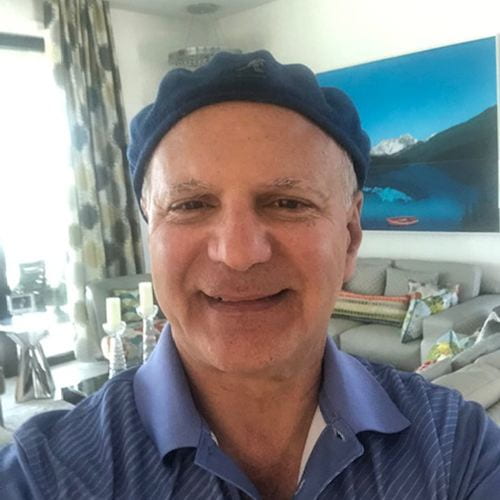
Ted Anton
Ted Anton is the author of four books and co-editor of a fifth. His book, Planet of Microbes: Perils and Potential of Earth’s Essential Organisms (University of Chicago Press, 2017) describes the power of single-celled life to rescue the Earth, while a previous book, The Longevity Seekers, traced the science and business race for a drug to extend human health. His book Bold Science: Seven Scientists Who Are Changing Our World (Henry Holt: 2000, W.H. Freeman, paperback: 2001) was an Amazon.com Science Book pick and a featured choice on howthingswork.com. The San Francisco Chronicle described it as being on the “pioneering edge of science writing, spreading the notion that is a viable field of literary work.
Endings and Beginnings
I always wondered what it would be like to be a writer, and I remember my college teacher who was a famous author telling me, “it doesn’t get any easier. It gets harder.” I did not believe her, but now I think I understand.
In this moment, I am finishing a book of popular science writing on the new science of synthetic biology, which is changing life by changing DNA. This new research field gave us the Impossible Burger and the COVID vaccine, and perhaps may help save the planet with sustainable fuels, medicines and chemicals. My book is not a textbook. It is written like a novel, about fascinating scientist characters, and so far I have shown 25 of the scientists the passages I wrote about them.
Of those scientists, 22 of them liked the passages and gave me edits. A couple were critical but gave me edits. One was very critical but still gave me many edits he suggested. I take many of their suggestions, but not all This raises the question, should you show someone what you are writing, if it is nonfiction?
The answer is, generally not. You are supposed to call them and read aloud or ask questions about specific passages. That is called fact checking. But in science writing, the final edits are very hard because most writers are not scientists, so it is easy to get something wrong. The publisher wanted me to get permissions from some of my sources, so that is what I am doing. Generally the suggestions are helpful.
If you want to be a writer I hope you open yourself up to writing about science. Such writing is very creative and very much in demand because not many people do it. They are afraid. It turns out scientists are usually very approachable and happy to help you write well about them. It is a good field for jobs. That is my ending project.
I am also starting a new project, a podcast pilot episode with a very good team of younger documentary makers based on my first book on an unsolved Chicago murder. It was the death of a beloved professor of Renaissance magic and after-death journeys at the University of Chicago. Nothing was taken. He was shot once in the back of the head on the campus. The real life murder was like something out of a novel, and he wrote lots of similar scenarios himself.
It’s fascinating because he believed that writing could change the world, and he wrote stories about real-life events before they happened. He wrote about politics in his native Romania and about his students and colleagues and figures from the Renaissance in Italy. He was also very funny.
It is fascinating to me to see this team of young documentary makers go back to the same people I interviewed thirty years ago and hear what has changed in their opinions. It is difficult because his death caused such pain to people who loved him. He was engaged to a former student and many people’s lives have never been the same in the thirty years since he was killed. I have to go back and read my own book and try to understand what happened. The new documentary makers have a theory about who killed him. To hear what it is, we all have to listen to the podcast.
What’s new to me about podcasts is that the interviews are different than they are in a book. They are more like conversations where you interrupt each other, change each other’s mind, and interact on a deep and sometimes humorous level. I am learning as much from this team about ways of doing research as I am teaching them.
So that is my life as a writer—one ending, of the science book, and one new beginning, of the podcast, and writing every day about things on my mind, much like the cool Blue Book blog. I hope you write some 200 words every day. I hope you send me some of your pages. I would love to comment. I wish you all all my very best. It is not an easy life, but it is super fun to be a writer.
Ted

